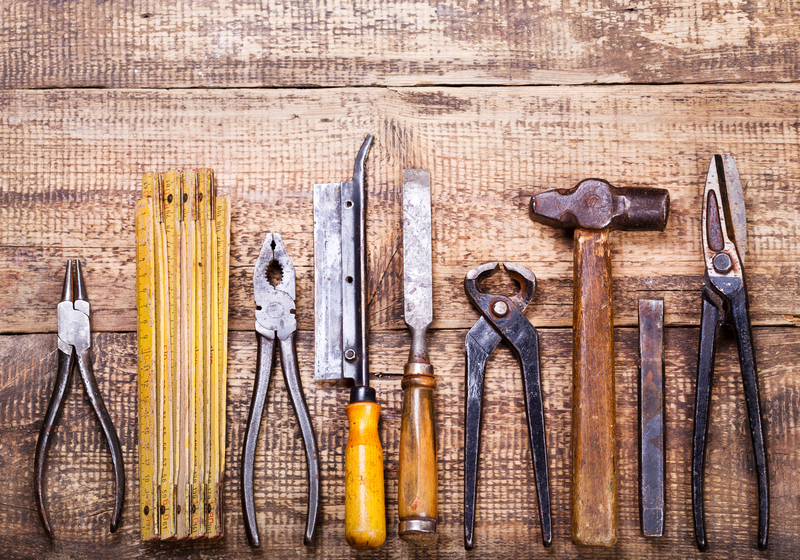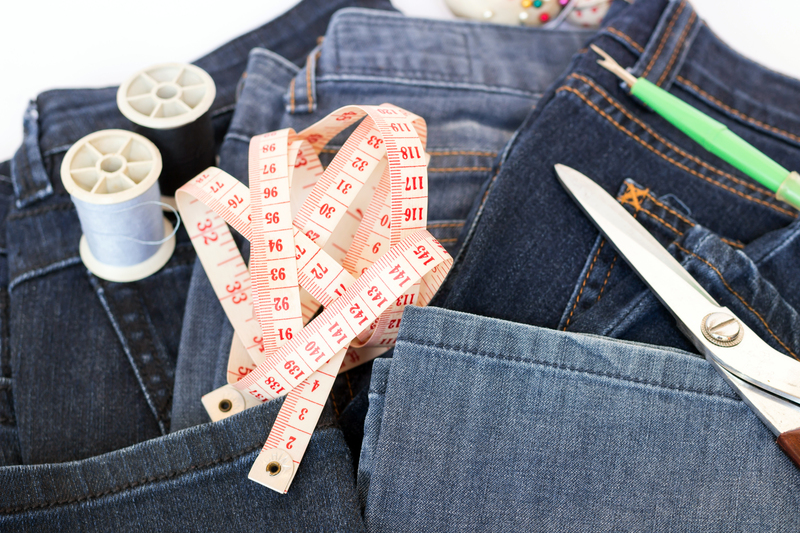Bulky Waste Items on a Budget: Tips for Cutting Disposal Costs
Dealing with bulky waste items like old furniture, appliances, and mattresses can be a challenge, especially if you're on a budget. Often, disposing of large household items involves high costs, strict municipal rules, and logistical headaches. However, with a bit of planning and resourcefulness, you can efficiently manage bulky waste disposal while keeping expenses to a minimum. In this guide, we'll explore practical tips, alternative disposal options, and valuable insights into keeping your large-item waste management affordable and eco-friendly.

Understanding Bulky Waste: What Qualifies?
Before discussing disposal strategies, it's crucial to define what counts as bulky waste. Municipal services and waste removal companies typically use this term for items that are too large or heavy for regular trash collection bins.
- Furniture: Couches, beds, wardrobes, tables, chairs
- White goods: Fridges, washing machines, dryers, stoves (sometimes called "hard waste")
- Mattresses: Including bed frames and box springs
- Electronic waste: TVs, computers, printers (covered separately in some regions)
- Carpets and rugs: Large floor coverings
- Outdoor equipment: Grills, lawnmowers, bicycles, play structures
These items, due to their size and materials, often require special collection or handling. As such, finding budget-friendly bulky waste disposal options is a must for cost-conscious households.
Why Is Bulky Waste Disposal Expensive?
Most people are surprised to learn that disposing of large items costs significantly more than regular trash removal. Here's why:
- Labor Intensive: Bulky items require more manpower and equipment to lift, move, and load
- Truck Space: Large items fill up garbage trucks quickly, increasing transit costs
- Recycling Fees: White goods and electronics often demand safe dismantling due to hazardous parts
- Landfill Charges: Dumping large objects can incur higher fees per item
- Environmental Regulations: Local rules may require special processing for certain materials
Given these challenges, affordable large item disposal requires creative thinking and strategic planning.
How to Cut Down Bulky Waste Disposal Costs
Here are proven strategies for keeping bulky waste removal affordable without sacrificing convenience or environmental responsibility:
1. Check for Free Municipal Collections
Many towns and cities offer annual or seasonal bulky waste pickups as part of local waste services. These programs may be included in your property taxes or municipal fees and can help you avoid paying private haulers.
- Check your city's website for the bulky item pickup schedule and guidelines
- Register early--slots can fill up fast in busy neighborhoods
- Follow all rules about item types, sizes, and preparation (e.g., removing fridge doors for safety)
2. Donate or Sell Usable Items
If your furniture or appliances are still in usable condition, consider donating or selling them. Not only does this approach eliminate disposal fees, it helps reduce landfill waste and benefits others.
- Nonprofits like Goodwill, Salvation Army, Habitat for Humanity ReStores often accept furniture and appliances
- Online platforms like Facebook Marketplace, Craigslist, Nextdoor, OfferUp can help you quickly sell or give away large items
- Arrange curbside pickup if available--some charities pick up large donations for free
Pro Tip: Clean and photograph your item to make it more attractive to buyers and charities.
3. Recycle Whenever Possible
Many bulky waste items contain valuable materials such as metal, wood, and electronic components. Recycling can be a cost-effective disposal method--and sometimes, you might even earn a small profit.
- Scrap metal yards may accept bed frames, appliances, old bikes, and other metal-heavy items
- Look for specialized electronics recycling events for TVs, computers, and peripherals
- Mattress recycling programs are available in many states and cities
- Some recycling centers accept clean, dry carpets and rugs
*Always check ahead: Some centers may charge fees for certain items, while others offer free drop-off or even small payments for recyclables.*
4. Pool Resources With Your Community
Sharing resources with neighbors can significantly lower your cost per item. Organize a neighborhood bulky waste day to split dumpster rental or hauling service costs.
- Coordinate with your block or building to pool items for disposal
- Contact local haulers for group rates or discount pricing for shared pickups
- Share tips on donation and recycling solutions in your local online forum
5. Rent a Dumpster--Only If It's Cost-Effective
Renting a small roll-off dumpster is efficient if you're clearing out multiple rooms or combining forces with neighbors. However, evaluate whether your bulky waste load justifies the cost--and always compare prices.
- Get at least 3 quotes, specifying your item list and estimated weights/sizes
- Ask about weight limits and overage fees
- Plan to fill the dumpster completely to maximize value
6. Consider "Junk Removal" Services With Flat Rates
Private junk hauling services can be convenient but often expensive. Some companies, however, offer flat rate pricing or single-item pickup for a reasonable fee--especially for landlords and businesses.
- Look for local, independent junk removal companies rather than national chains for better rates
- Schedule a joint pickup with neighbors or friends to split costs
- Request a written quote in advance to avoid surprise charges
7. Use Retailer and Manufacturer Take-Back Programs
Certain retailers offer free or discounted haul-away when you purchase a new appliance or mattress. Some electronics manufacturers run product stewardship programs for old TVs, computers, and more.
- Ask about free old item removal when scheduling a delivery
- Check store policies--some require advance notice or small handling fees
- Research manufacturer and store recycling events throughout the year
DIY Tips: Breaking Down Bulky Items to Save Money
Disposal rates for bulky waste items are often based on size and weight. By disassembling or cutting up large items, you may be able to put them out with regular trash on your scheduled pickup day--or reduce your cost at the landfill.
- Remove legs, arms, and upholstery from sofas for easier handling
- Break down bed frames and headboards into flat pieces
- Take apart appliances, removing doors and sorting hazardous components
- Roll up or fold carpets tightly and secure with tape for compactness
*Always use proper safety tools and wear gloves/eye protection when disassembling items.*
Expert Tip: Check with your trash service before curbside disposal. Some municipalities allow smaller sections of bulky waste in regular bins, while others have strict size and weight limits.
How to Avoid Fines and Extra Fees
Improper disposal of large items can result in hefty fines or additional service fees from your trash provider or city. Make sure you:
- Follow Local Guidelines: Check rules for accepted items, bundling, and item preparation
- Don't Dump Illegally: Abandoning large items on public land or curbside outside of scheduled pickups can result in steep penalties
- Keep Proof of Permits/Payment: Always hold onto disposal receipts or registration confirmation for municipal pickups
Environmentally Friendly Bulky Waste Disposal
Going green doesn't have to mean spending more. In fact, many eco-friendly strategies for bulky waste disposal are also the most economical:
- Repurpose: Convert old furniture into shelves, planters, or DIY projects
- Community Giveaways: List items on local "Buy Nothing" or community swap groups
- Upcycle: Partner with local artists or makers interested in free materials
- Charitable Donations: Help furnish homes for those in need while saving on fees
By thinking creatively, you reduce landfill waste, support your community, and manage bulk item disposal on a budget.
Bulky Waste Disposal Cost Comparison Chart
| Method | Average Cost | Best For | Key Tips |
|---|---|---|---|
| Municipal Free Pickup | $0 (if included) | Residents with access to city collection | Check schedule and register early |
| Charity Donation | $0 (free pickup) | Usable, safe items | Clean and photograph item |
| Private Junk Removal | $50-$600 (based on load size) | Mix of items, time-sensitive cleanouts | Get flat-rate quotes, join with neighbors |
| Dumpster Rental | $250-$600 (per dumpster) | Major clearouts and remodels | Share with others to save money |
| Retailer Take-Back | $0-$50 (per item) | Appliance or mattress replacement | Ask about haul-away at purchase time |
| Recycling Scrap Yards | $0 (may pay for metal items) | Metal-heavy appliances, bed frames | Sort and separate materials first |
Frequently Asked Questions
What's the cheapest way to get rid of bulky items?
Free or city-sponsored bulky waste collections are usually the cheapest. Donation and recycling are free if your item is in good condition or made of mostly metal. For pure trash, breaking items down and using municipal pickup is your most affordable option.
Can I leave large items on the curb?
Only on designated collection days, and only according to your municipality's rules. Unscheduled dumping can net fines and tarnish your curb appeal!
What should I do with old mattresses and appliances?
Check for mattress recycling programs and retailer haul-away options. Many areas also offer e-waste and white good collection events. Never dump these items, as they may require special handling.
What if my city doesn't offer free bulky waste pickup?
Explore group hauling, negotiate discounts with local junk removal companies, or utilize recycling and donation services. You can also contact your landfill or transfer station for direct drop-off rates--bring proof of residency for potential discounts.
Are bulky waste disposal fees tax-deductible?
Fees are generally not deductible, but donated items may provide a tax benefit if you itemize deductions. Save your donation receipts!

Final Thoughts: Saving Money with Smart Bulky Waste Management
With growing landfill costs and environmental concerns, smart homes and businesses are finding new ways to manage large waste items without breaking the bank. By leveraging free municipal services, donating and recycling, pooling resources, and breaking down items yourself, you can cut disposal costs significantly. Add a little creativity and you'll not only save money but also reduce waste and help your local community.
Start planning your next declutter project with these tips and enjoy the peace of mind that comes with efficient, sustainable, and affordable bulky waste disposal.
Summary: Key Tips for Bulky Waste Disposal on a Budget
- Use free municipal or scheduled collections whenever possible
- Donate or sell items in good condition
- Recycle valuable materials at specialty centers
- Pool resources with neighbors to share costs
- Break down items to fit regular trash rules
- Watch out for fines from improper disposal
- Think creatively to upcycle, repurpose, or give away for free
For more expert advice and the latest updates on bulky waste items and cost-effective disposal solutions, check your city's waste management website or consult local recycling guides.
